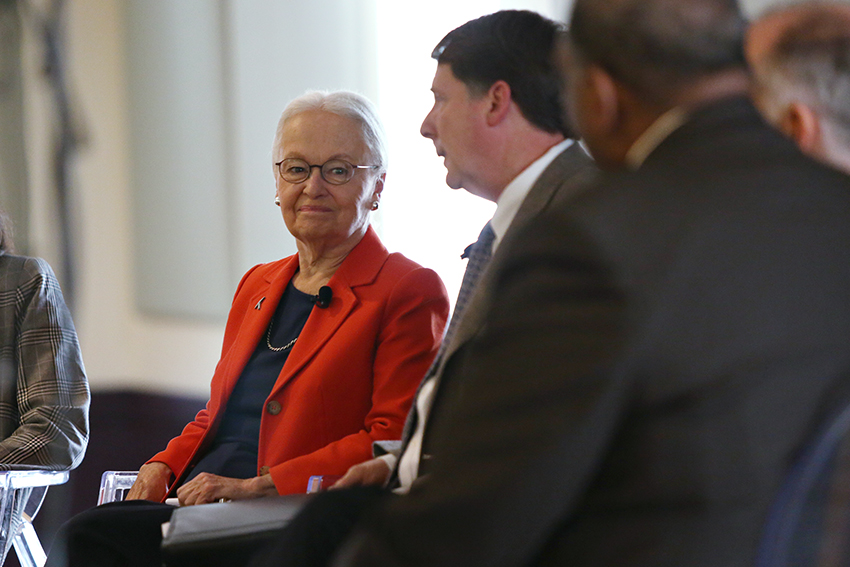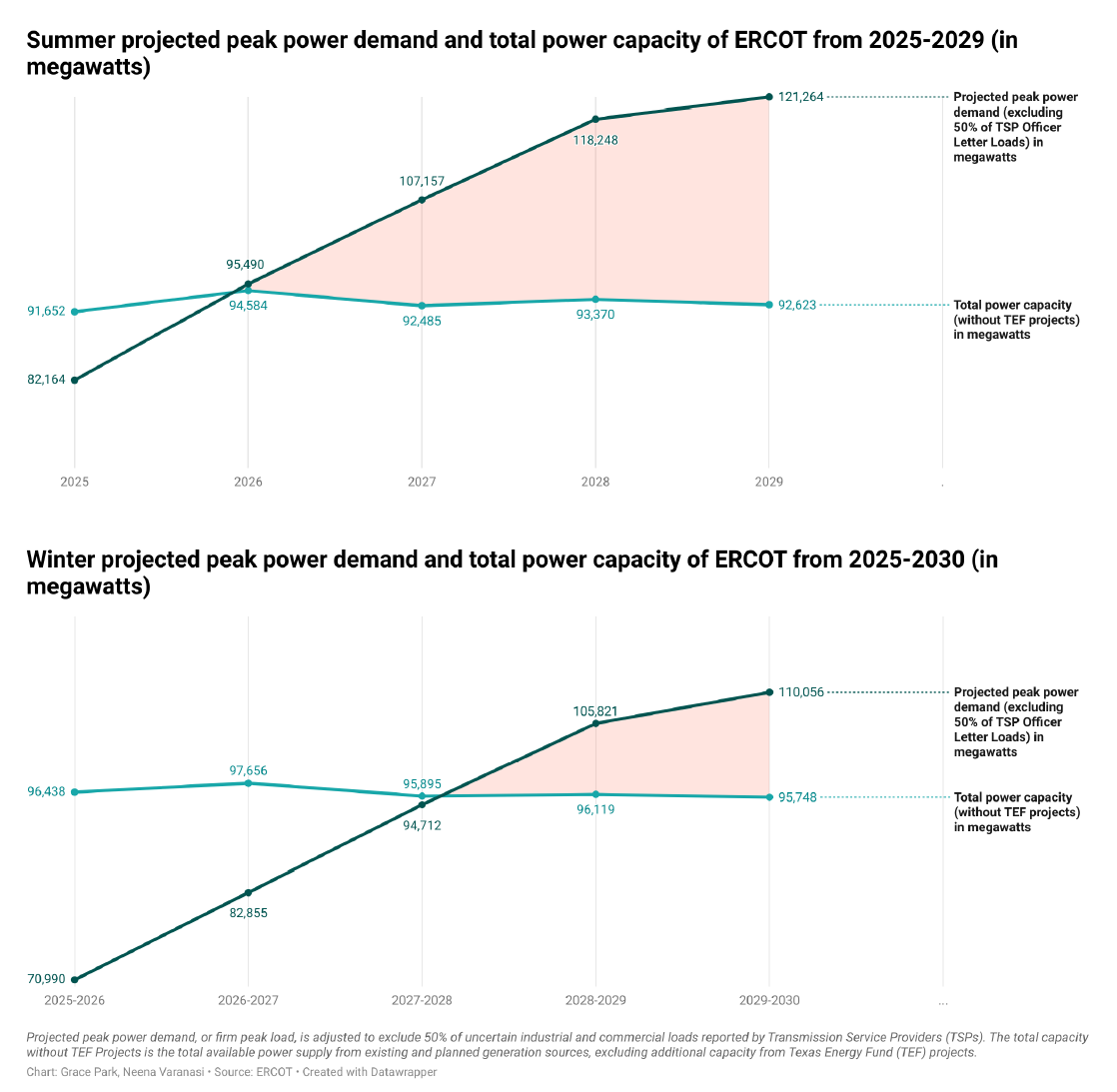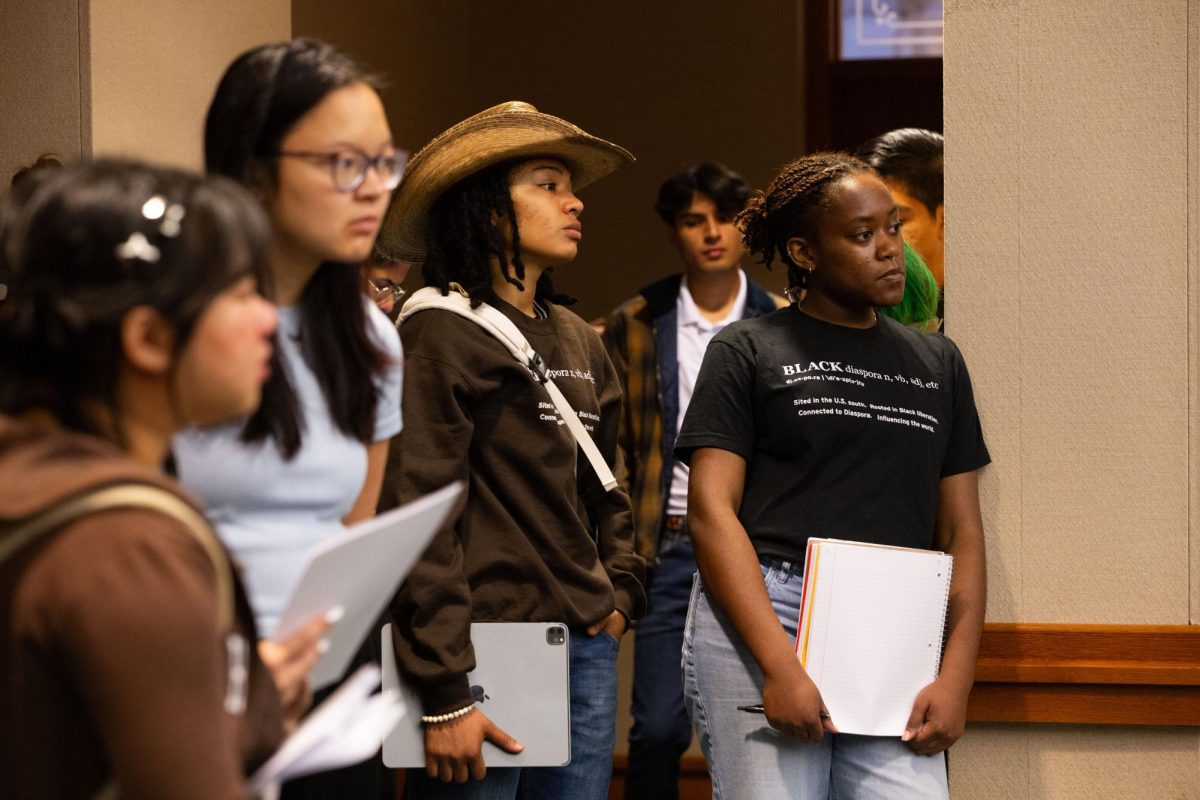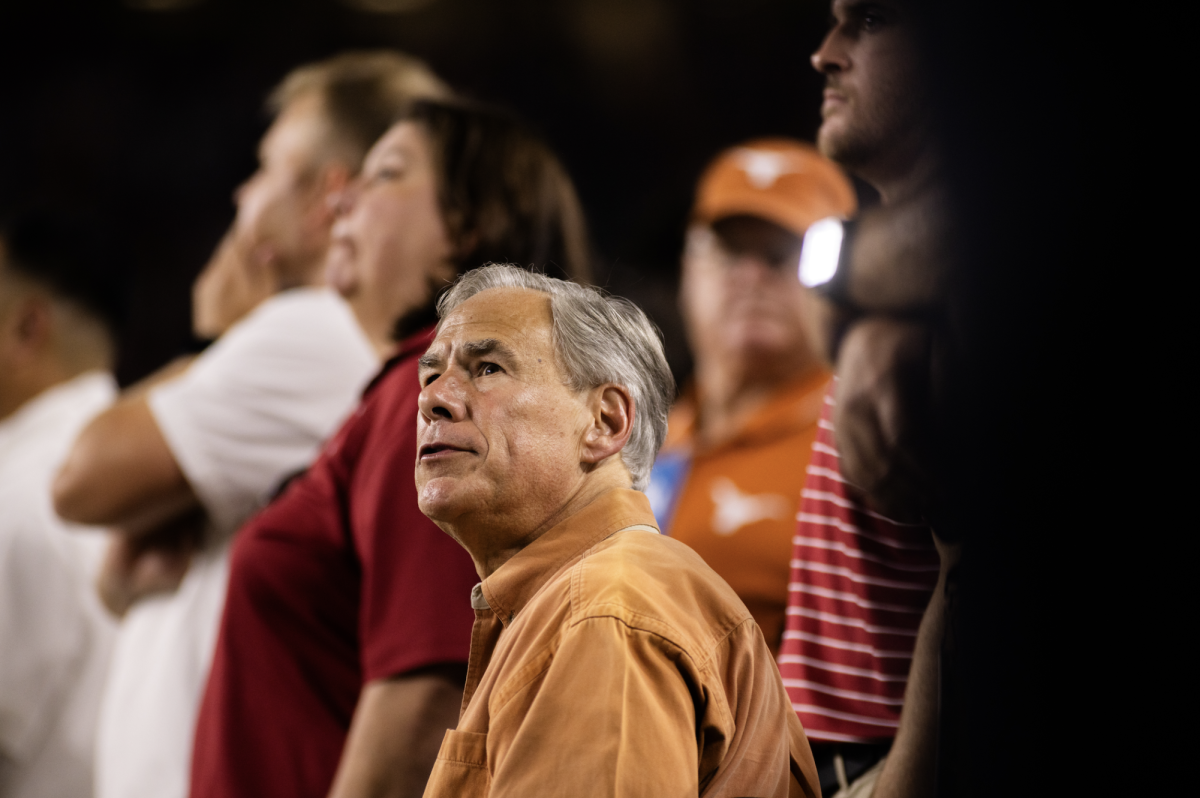Lack of financial aid for university students, support for marginalized students and education policy dominated the conversations at two Texas Tribune Festival panels on higher education.
Presidents of Texas universities, chancellors of Texas university systems and higher education officials all met at the festival Friday to discuss the most pressing issues impacting college students.
At the festival’s “Economics of Higher Ed” panel, Diana Natalicio, UT-El Paso President, said lower-income students are still unable go to school with enough support to pay full attention to their studies.
“Students whose families make less than $20,000 can catapult themselves if they get degrees in engineering or computer science,” Natalicio said. “But the struggle to get there … becomes more difficult every day.”
Brian McCall, Texas State University System chancellor, said he is encouraging the Texas State System to make the lives of lower-income and first-generation college students easier through various mentoring and advising programs
“These are the things that we can do that aren’t big-picture or big-dollar things,” McCall said. “If we can help these first generation college students … they will be a college graduate, they will likely marry a college graduate and their children will be college graduates.”
Michael Young, Texas A&M University president, said universities need to educate students about financial aid opportunities and stress the importance of working at least 15 hours on campus because it will lead to quicker graduation rates and more overall academic success.
“Right now, about 70 percent of students get financial aid, (but) there is a cohort of students for whom that aid may not be enough,” Young said. “If Texas aspires to be competitive with a number of states … investment of higher education has got to be critical.”
State Sen. Royce West, D-Dallas, said the Texas Legislature has multiple funding priorities, but items such as healthcare often dominate the budget over higher education funding because of spending on mandatory federal programs such as Medicare and Medicaid.
“One of the legislature's favorite projects is supporting institutions of higher education, but we shouldn’t just keep on talking about this,” said West, Vice Chairman of the Senate Committee on Higher Education. “We need to actually increase our financial aid programs and understand that our middle class students also need assistance.”
During the “Test for the New Texas” panel, former U.S. Education Secretary John King said the U.S needs to change from providing incentives for increasing college enrollment to providing incentives to increase college graduation rates, especially among minority students.
“Unless we improve our college completion rate, we’re not only going to struggle domestically but we’re going struggle internationally,” King said. “If we fail to educate our students of color and low-income students, we have failed as a country,”
Raymund Paredes, Texas commissioner of higher education, said despite a low percentage of students who graduate on time, the state is making substantial progress toward improving overall higher education.
“There are a lot of things we can do to be more cost-efficient on college campuses,” Paredes said. “One of the reasons I feel optimistic about the future is because we have a long way to go.”





















